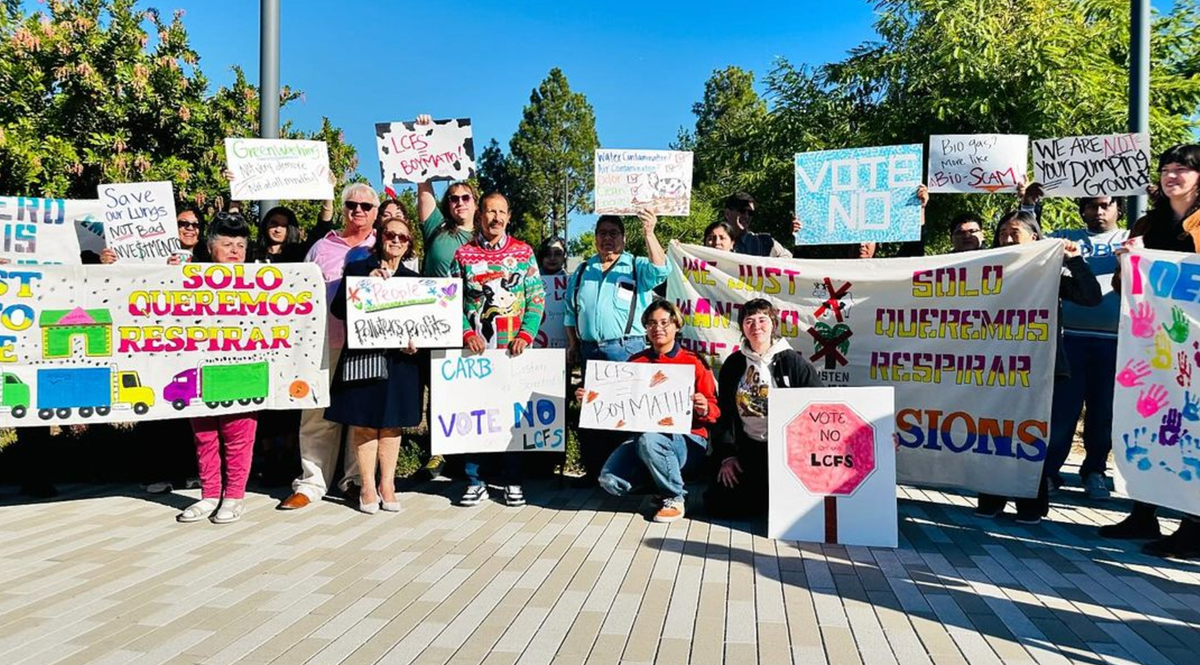CARB approves controversial changes to its fuel standards amid criticism from environmental groups and some industry

The California Air Resources Board (CARB) voted on November 8 to implement changes to the Low Carbon Fuel Standard (LCFS) aimed at reducing transportation emissions, despite objections from pollution-burdened communities, some oil companies and Republican lawmakers.
Approved in 2009, the LCFS program is one of nine early action measures in the Scoping Plan designed to combat climate change. The goal is to reduce carbon emissions and oil dependency and secure air quality improvements through a credit system that allows fuel producers and importers to purchase credits to offset their carbon footprint.
CARB’s changes aim to reduce vehicle emissions by 30% by 2030 and 90% by 2045. These targets will be reached by accelerating the use of electric and hydrogen fuel, while incentivizing biofuel producers.
“The program revisions will serve to accelerate the transition to electric vehicles that is central to the state’s climate strategy,” said Spencer Reeder, an Audi representative. “The LCFS program is unique in its ability to incentivize the utilization of zero emission battery electric vehicles, generating more emission reduction and better air quality.”
For frontline residents and environmental justice advocates, CARB appeared to backpedal on a zero-emissions policy, potentially contributing to food instability and deforestation.
“CARB must do better,” said Nina Robertson, an attorney with Earthjustice. “The incoming Trump administration has promised to undermine California’s climate progress and this agency’s authority...At this critical moment, we need CARB to muster every resource for zero climate transportation.”
The LCFS has driven a surge in biofuel, an alternative derived from plant and animal waste. While CARB officials claim biofuels reduce emissions compared to fossil fuels, some experts caution against optimism as the results of biofuel use and production are mixed.
According to a University of Pennsylvania report, roughly 80% of the LCFS credits issued so far – worth more than $17.7 billion – have gone to biofuels. Renewable diesel fuels made from soybean oil present unintended consequences in the form of deforestation and food system disruptions.
While CARB has imposed limits on the renewable diesels derived from soybean, canola and sunflower oils, environmental groups argue these limits may not be enough.
“The failures of this Proposal will reward environmentally damaging agricultural practices, increase GHG emissions, extend the pollution burden of refining in fence-line refinery communities, drive up food prices, and create a perverse incentive to expand deforestation,” reads a letter submitted by Earthjustice and 13 other groups to CARB on Nov 5.
Other critics argue the changes could raise gas prices and hurt Californians at the gas pump. Republican Assemblyman Tom Lackey (D-Palmdale). Lackey argues many of his constituents, who drive hours a day to serve the state’s economy, will be severely impacted.
“If you approve this measure, California drivers will pay over $2 more a gallon than other drivers throughout the country,” he said.
Don Gilstrap, Chevron’s manager of fuel regulations, explained that CARB should reconsider the proposed changes and their effect on California's fuel “supply reliability.”
“These new requirements require biofuel producers to start mapping tens of thousands of farms in the US and Canada to document their fuel stock sources to no real benefit,” Gilstrap said. “These farms and suppliers will also have to undergo ardent sustainability audits. There will be suppliers that cannot or will not participate, and that is a threat to [fuel] supply reliability for California.”
Dillon Miner, an air pollution specialist with CARB, acknowledged during the meeting that the agency can’t predict future developments, including shifts in fossil fuel demand, advancements in alternative fuels or changes in federal and state climate policies.
“All of these unknowns make speculating on what future fuel prices will be not only inherently incorrect, but also misleading,” said Miner.
But CARB board member Dean Florez challenged the assertion made by Miner and staff that the board’s decisions will not contribute to gas price increases, emphasizing on social media that the outcome of the LCFS vote could play a causal role.
“Unfortunately, this LCFS CARB vote is a misstep that will provide [Donald] Trump an opportunity to argue that California’s climate policies are out of touch and economically unsustainable and risk the Governor’s broader ‘safeguard’ Special Session.”
Anthony Victoria contributed to this story
